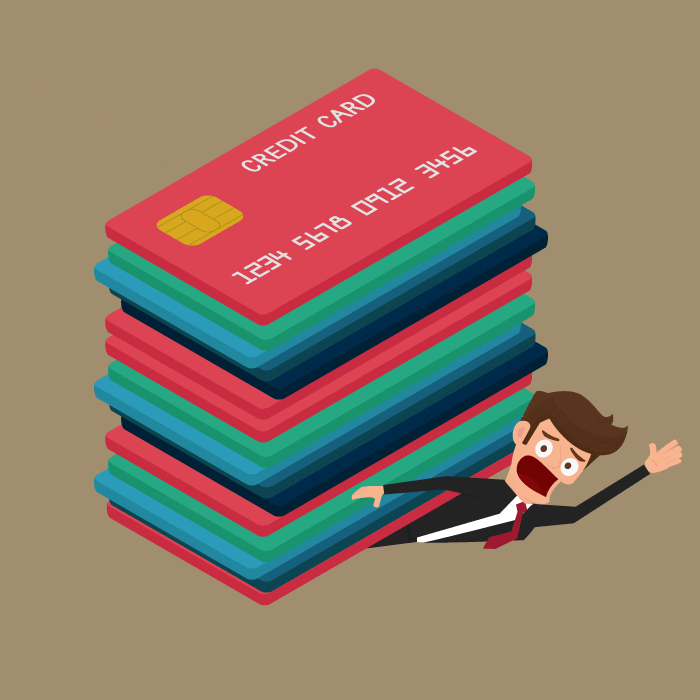I’m a senior in college, and I’m just about to graduate. Thankfully, my parents were able to help me with student loans, but I did get a credit card my sophomore year for groceries and other items while I lived on campus. I also started to use that card for personal purchases, and as a result I’ve racked up a little over $8,000 in credit card debt. I don’t want to have lots of debt when I graduate, because I’ll have student loan payments to make, too. How do I get out of credit card debt fast?
Credit card debt is an unfortunate fact of life for many, but it isn’t forever. Once you’re no longer paying minimums on your credit card, you’ll be amazed at how quickly you can pay down your student loans and build wealth. If you use the following three tips, you’ll be able to get out of credit card debt quickly.
Make a budget ”” and stick to it
The key to getting out of credit card debt is to stop spending more than you earn. That begins with creating a written budget of the money you bring in and the expenses you anticipate each month. Necessities like rent, groceries, and utilities should always be budgeted for first, followed by any debt payments you may have, and then more discretionary spending. Plenty of apps can help you stick with your budget by helping you visualize your financial situation. They help you determine whether you have money to go out for pizza with your friends without needing to lean on your credit card to pay the water bill later that month.
Attack your debt
Once you’re on a budget, you can figure out where you might be able to put more money towards paying down your debts. You’ll want to make sure that your minimum credit card payments are always covered before coming up with this amount. There are two philosophies when it comes to paying off your debts quickly, and which method you choose is up to you. The first option, called the “snowball method” prioritizes paying off your smallest debts first. This can give you a psychological advantage, because you’ll see yourself making progress more quickly, although it may end up costing you more in accrued interest payments in the long run. The opposite strategy, known as the “avalanche method,” has you paying off the highest interest debts first, so that they don’t sit and accrue more interest. If time is your ultimate priority, then you’ll want to use the avalanche method, although it’s important to remember that the fastest method is usually the method you’re most likely to stick with.
Leverage anything you can
Another way to speed things up is to leverage any sources of money you may be able to access to increase the payment you can send towards your debts each month. This could mean using any monetary gifts you receive at graduation to pay down debt. It may also mean selling some of your belongings or picking up a side hustle. These temporary actions can have a big effect on how quickly you can pay down your credit card debts. When considering whether or not to sell something, frame your question as, “Would I rather have this item or be debt free two months sooner?” You may be surprised at how quickly you’re willing to ditch that video game console that’s been gathering dust while you attend classes.
If you’ve really hurt your credit score as a result of irresponsible credit card use in college, it may be worth seeking out a service like Solid Ground Financial to help repair your credit score. Everything from rental and mortgage applications to background checks for your job will rely, in part, on your credit score, so it’s important to get your finances in order before you enter the “real world.” With hard work and a solid plan, you’ll be able to get out of debt fast so that you can live out the future you’ve been working toward in undergrad.




